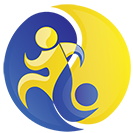TMJ Disorder
What is TMJ disorder (TMD)?
TMJ stands for temporomandibular joint, which is the joint that connects your jawbone to your skull. TMJ disorder (TMD) is a condition that affects this joint and the surrounding muscles and tissues. It can cause pain, stiffness, and clicking or popping sounds when you open or close your mouth.
What are common signs and symptoms of TMD?
Pain or tenderness in the jaw area, especially in front of the ears or at the joint itself.
Difficulty or discomfort when chewing, biting, or opening and closing the mouth.
Clicking, popping, or grating sounds when moving the jaw.
A feeling of stiffness or limited movement in the jaw.
Headaches or earaches, often in the morning.
Aching pain in and around the face, neck, and shoulders.
Swelling on one or both sides of the face.
Tooth sensitivity or toothaches, sometimes caused by clenching or grinding teeth.
Dizziness or vertigo.
Tinnitus or ringing in the ears.
It's important to note that not everyone with TMJ disorder experiences all of these symptoms, and some people may have additional symptoms not listed here.
Physiotherapy can be an effective treatment for TMJ disorder.
What are some causes of TMD?
There are several common causes of TMJ disorder (TMD), including:
Injury: A blow to the jaw or a whiplash injury can cause TMJ disorder.
Teeth Grinding or Clenching: Chronic grinding or clenching of teeth puts pressure on the TMJ and can cause TMD.
Arthritis: Osteoarthritis or rheumatoid arthritis in the TMJ can lead to TMD.
Stress: Stress can cause tension in the muscles of the jaw and face, which can lead to TMD.
Poor Posture: Poor posture can put strain on the muscles of the neck, shoulders, and jaw, which can contribute to TMD.
Genetics: Some people may be predisposed to TMD due to their genetic makeup.
Can Physiotherapy help with TMD?
Physiotherapy is a helpful approach for treating TMJ disorder. Physiotherapists utilize various techniques to alleviate pain in the TMJ area such as massage, ultrasound therapy, and dry needling. Additionally, exercises can be prescribed to enhance the strength, flexibility, and range of motion of the jaw muscles, leading to improved jaw function.
To further alleviate muscle tension in the jaw and surrounding regions, physiotherapists can use techniques such as heat therapy, manual therapy, and stretching. Patients can benefit from the guidance of physiotherapists on proper posture, jaw positioning, and relaxation techniques, which can decrease the strain on the TMJ and prevent future TMJ issues.
It's important to note that the specific treatment plan for TMJ disorder will vary depending on the individual and their specific symptoms. If you're experiencing TMJ disorder symptoms, come see one of our Physiotherapists to determine the best course of treatment for you.

